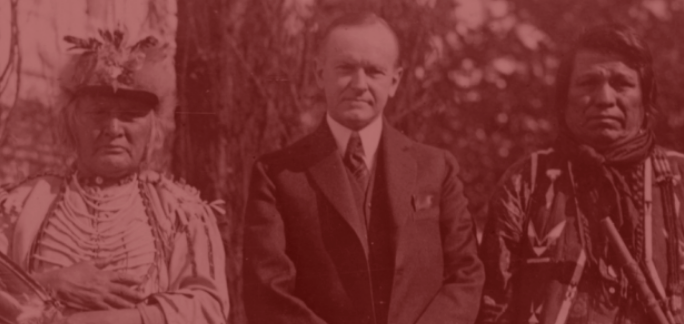
- Details
- By Professor Anton Treuer
Guest Opinon. America tried to kill my family and other Native families many times and many ways. Alexander the Great, Ghengis Khan, Julius Caesar and other conquerors often allowed new subjects to keep their land, titles, and prosperity as long as they bent their knees to the new rulers. America made no such offer to Native Americans. We had to relocate or die in the fastest dispossession in the history of the world. America paid veterans of theAmerican Revolutionary War in Indian land grants and it hadn’t even acquired the land from the Natives yet. That’s why the Office of Indian Affairs (now renamed the Bureau ofIndian Affairs) was originally housed in the Department of War.
Some Ojibwe fought with Pontiac, and some with Tecumseh. Others, like my family, fought in the Battle of Sugar Point at Leech Lake in 1898. Many other Ojibwe bands avoided direct conflict, fled to Canada, or tried diplomacy to save our lands, lives, and livelihoods. Then came residential boarding schools, termination, relocation, suppression of religious freedom. The denial of access to economic opportunity was in some ways harder yet, simply because it has been such a long-lasting condition. Ghandi said, “Poverty is the cruelest form of violence.” And while America wanted us to be their subjects, they afforded us none of the benefits, including citizenship. It’s enough to make you mad for another 500 years.
[In commemoration of the 100th anniversary of the Indian Citizenship Act of 1924--signed into law on June 2, 1924,Native News Online will publish during the month of June guest essays to provide our readers with various perspectives from prominent Native Americans on the subject. Today's was written by Professor and author Anton Treuer.]
My grandmother, Luella Seelye, was sent to residential boarding school. She and my grandfather, Eugene Seelye, were born before the Snyder Act (Indian Citizenship Act) of 1924. Our family couldn’t escape the oppressions any better than any other Native family. But something else interesting happened in our family during that time. My namesake, Clement Beaulieu, was a veteran of World War I. My grandfather drove down to Fort Snelling and enlisted in the U.S. Army at the start of World War II and deployed to France during the Normandy invasion. My uncle, David Seelye, served in the 82nd Airborne in the Viet Nam era. My grand uncle, Howard Matthews, served in World War II. My grand uncle, Delbert Matthews, served in Korea. In spite of the fact that America showed them little love or respect, they still loved America. They were willing to risk their lives for this country. They weren’t naïve about the irony, but if they had to defend America to defend Native America, they were willing to do that. If they had to defend people and a country that often oppressed them so they could defend their own families and people, they were accepting. It was more than that too. They knew America could be cruel to the first people of this land, but they also believed in the possibility of this great country. They wanted freedom and equality and liberty for everyone and believed that America could deliver on those things.
Many Native Americans had become citizens by treaty, allotment, or special act of Congress for their service in the military after World War I. When the last Natives became citizens in 1924, it moved America one step closer to delivering on its promise of equality. As Natives gained suffrage and exercised their rights as citizens, their voices started to shape American politics like those of other Americans. We had to wait until 1978 to see passage of the American Indian Religious Freedom Act so that the first amendment protections of the Constitution could be properly extended to Natives, all of whom had been citizens for over fifty years by then. We’ve had other steps forward. And other steps back, like Termination and Relocation. But the American promise endure no matter how poorly it has been delivered. And the faith that many Natives placed in America endured as well. The Snyder Act was but a step in a long journey toward justice, and commemorating it one hundred years later is just another step on that same path. There is a lot of road behind us, and even more ahead. It now falls upon us to take stock of the 100-year milestone of Indigenous citizenship in America and hold our nation accountable to delivering the freedom and equality that will humanize us all and help heal our troubled nation.
Anton Treuer is a Leech Lake and White Earth Ojibwe descendant, Professor of Ojibwe at Bemidji State University, and author of "Where Wolves Don’t Die" and "Everything You Wanted to Know About Indians But Were Afraid to Ask."

Help us defend tribal sovereignty.
At Native News Online, our mission is rooted in telling the stories that strengthen sovereignty and uplift Indigenous voices — not just at year’s end, but every single day.
Because of your generosity last year, we were able to keep our reporters on the ground in tribal communities, at national gatherings and in the halls of Congress — covering the issues that matter most to Indian Country: sovereignty, culture, education, health and economic opportunity.
That support sustained us through a tough year in 2025. Now, as we look to the year ahead, we need your help right now to ensure warrior journalism remains strong — reporting that defends tribal sovereignty, amplifies Native truth, and holds power accountable.
 The stakes couldn't be higher. Your support keeps Native voices heard, Native stories told and Native sovereignty defended.
The stakes couldn't be higher. Your support keeps Native voices heard, Native stories told and Native sovereignty defended.
Stand with Warrior Journalism today.
Levi Rickert (Potawatomi), Editor & Publisher
